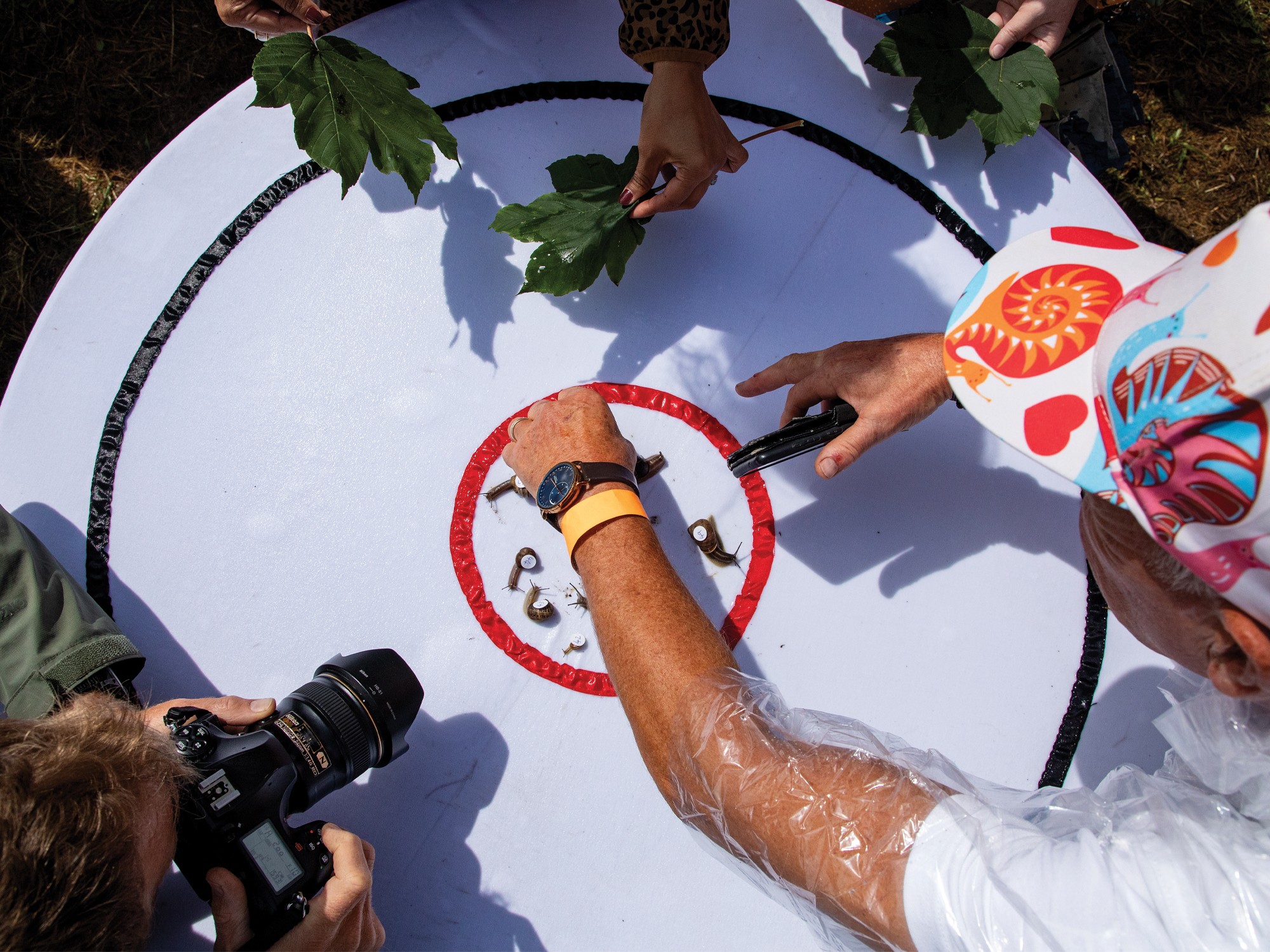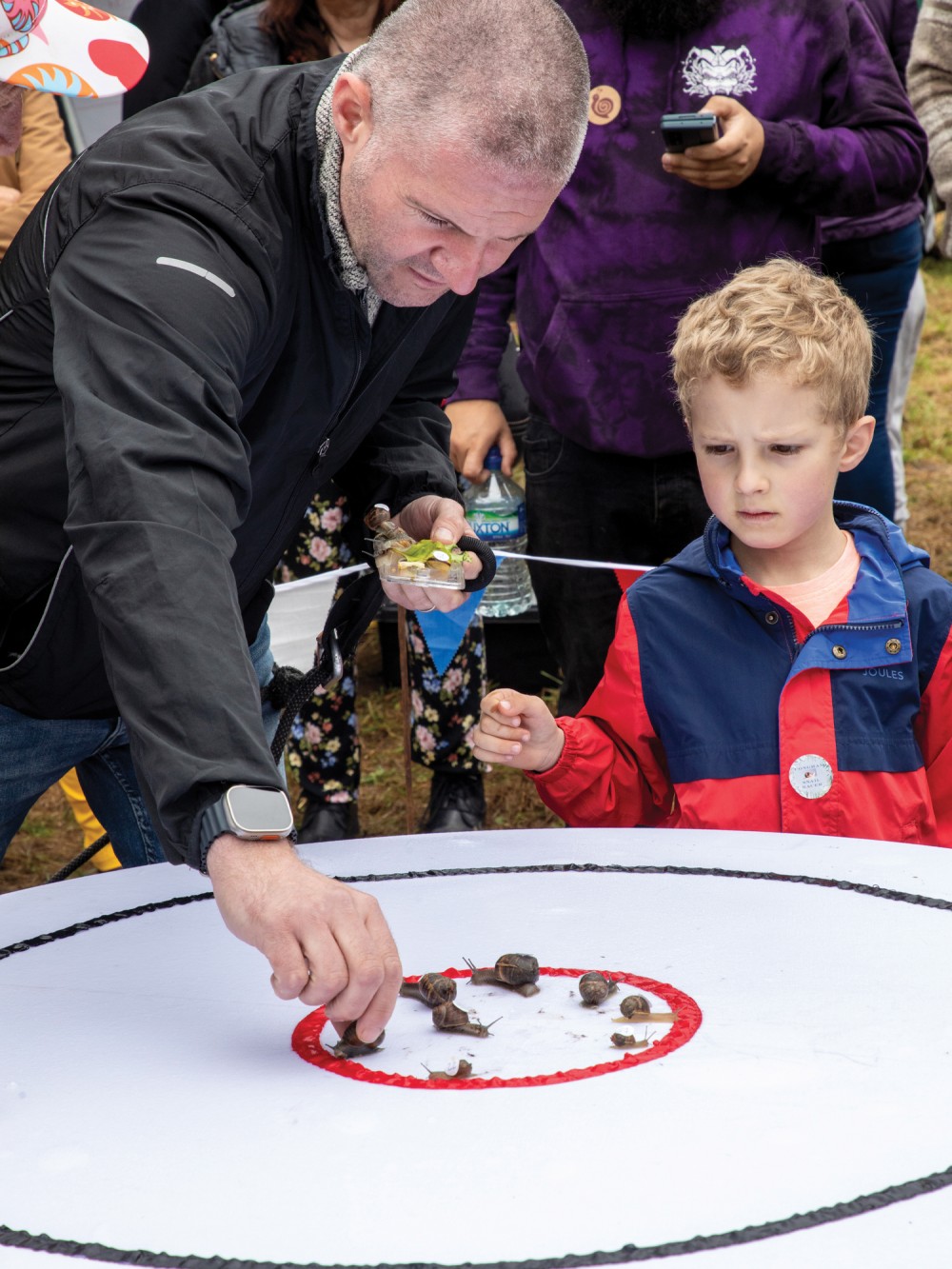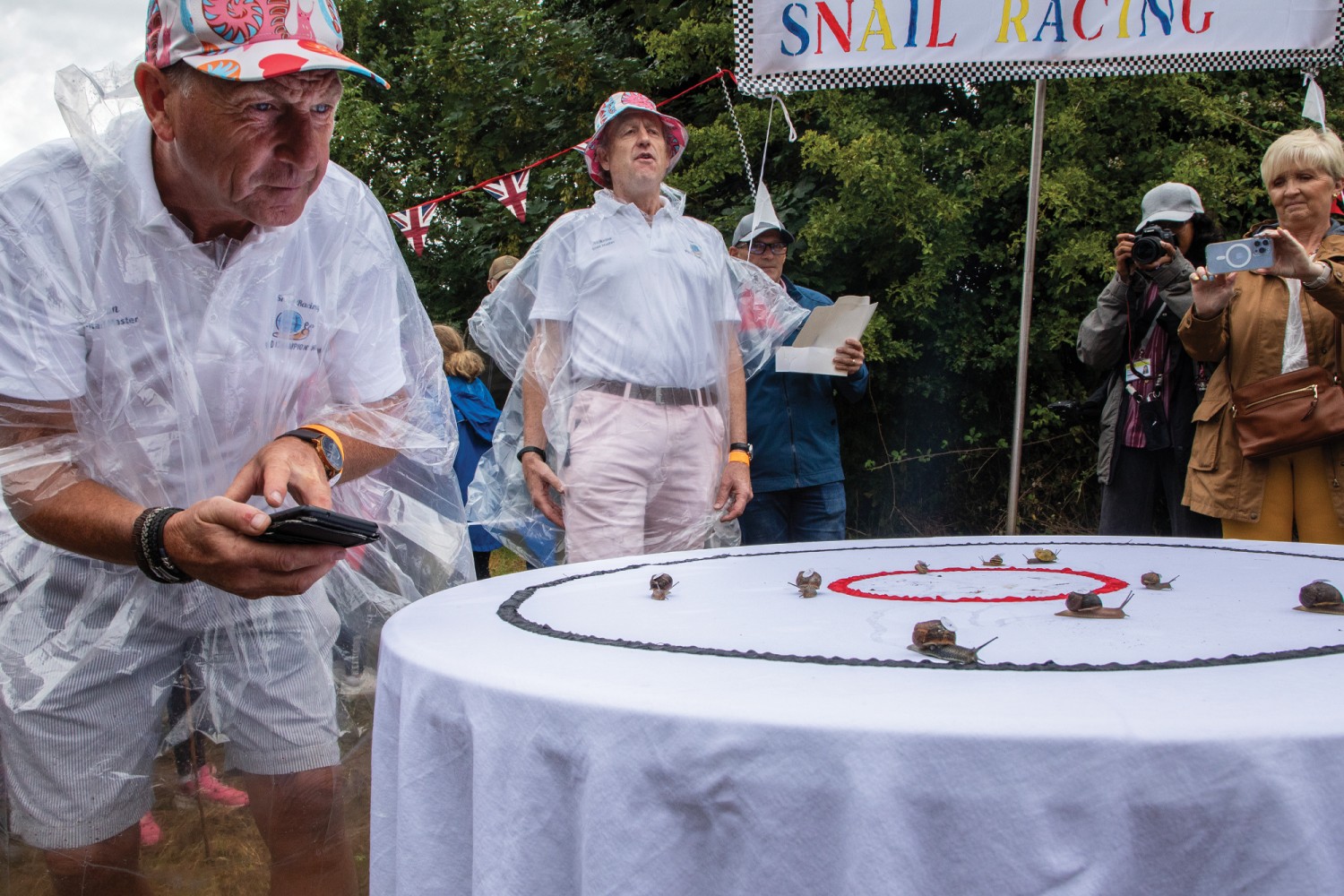
The slow and the curious
Join the shell-ebrations at Congham’s legendary gastropod grand prix, where your garden snail could become the next world champion
Each summer, in the typically tranquil Norfolk village of Congham, a global sporting event takes place that epitomises British eccentricity: The Snail Racing World Championships.
“Like so many British traditions, whether it be cheese rolling, bog snorkelling or worm charming, snail racing is just one of those completely bonkers things that people get captivated by and think they’ve got to try,” explains Nicholas Dickinson, one of the event’s two ‘Snail Masters,’
who rescued this peculiar tradition from extinction following the COVID-19 pandemic.
The championships trace their roots to the 1960s when local resident Tom Elwes returned from France after witnessing a similar competition. Feeling inspired, Tom established the British event with one key difference. Unlike its French counterpart, where all but the winning snail were destined for the dinner table, Tom’s version guaranteed all competitors their freedom.
Today, the Congham contest proudly holds the Guinness World Record as the longest-running humane snail racing championship, with data meticulously recorded since 1971. For nearly 60 years, molluscs have raced across a 13.5-inch circular track, starting from an inner circle and racing to reach the outer ring first. The record time of two minutes was set in 1995 by a snail named Archie, now hailed as the snail G.O.A.T (Greatest Of All Time) in racing circles.
Traditionally part of Congham’s village fête for four decades, the beloved snail racing event seemed destined to disappear when the fête’s organisers decided not to continue post-pandemic. “I was horrified at the prospect of losing what I thought was one of the great British traditions,” says Nicholas, who is also custodian of Congham Hall.
Elsewhere in the village, newcomer Ian Haynes had become captivated by the event and reached out to the previous organisers. “It seemed such a shame to let such a quirky British thing fade away,” he reflects. “It’s just such good fun.”
Nicholas and Ian’s shared concern led to a partnership that preserved the cherished tradition. It is now incorporated into ‘The Summer Big Bash,’ a lively day-long community celebration featuring a craft fair, a cricket match and evening music alongside the main mollusc attraction.
Under the stewardship of its new Snail Masters, the championships now follow strict protocols. Each race begins with the solemn command: ‘Ready, steady, slow!’ False starts are managed with gentle correction rather than disqualification, and snails attempting to hitch a ride on fellow competitors are swiftly separated.
The racing surface, a damp tablecloth bearing the two circular markers, is moistened with spring water drawn exclusively from Congham, a point of pride that maintains the event’s prestigious world championship status.
Competitors can bring their own garden snails (giant African land snails are strictly prohibited) or rent one
from the official ‘stable’. Many enthusiasts arrive with decorated competitors, their shells adorned with painted flags and colourful patterns, and each athlete sports a tiny identification number.
Past champions have raced under humorous names such as crowd favourite Uslime Bolt, while this year’s defending champion was named after Jeff Lynne of the Electric Light Orchestra.
Trainer Simon, from Spalding in Lincolnshire, didn’t expect greatness when he selected Jeff from the stable. “I just liked the look of him. He had good shell colours and appeared strong,” he recalls. “Jeff went on to win his heat and absolutely stormed the final.”

Simon’s training tips are simple. “Lots of encouragement, plenty of lush green leaves for energy and enthusiastic cheering!” he says. The champion trainer is awarded a pewter tankard trophy engraved with the names of previous winners, while the victorious snail receives a head of romaine lettuce to gorge on - high stakes indeed in the snail racing world.
While historically attracting mostly British competitors, this year’s event is drawing international entrants from France, Poland, and Malta. Scheduled for Saturday, 19th July, the 55th championships will kick off at 2pm, with heats culminating in a grand final between 4pm and 4.30pm.
Simon is keen to return to defend his title. “Jeff is somewhere about in my garden,” he promises. “We leave his favourite leaves out as we want to build him up to come back feeling strong.”
In a world often moving too fast, this charming community tradition celebrates the joy of slowing down. To find out more about The Snail Racing World Championships, and perhaps even train a winner yourself, visit www.snailracing.world

